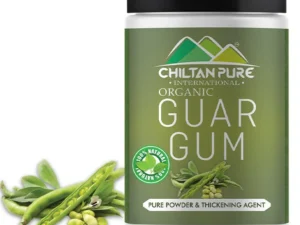Description
Stevia: A Natural Sweetener Alternative
With the growing popularity of low-carb and sugar-free diets, many people are turning to natural sweeteners as a healthier and more natural alternative to sugar. One such sweetener that has gained significant attention in recent years is stevia. This article will delve into the world of stevia, its origins, health benefits, and potential drawbacks.
Stevia is a natural sweetener derived from the leaves of the Stevia rebaudiana plant, a member of the sunflower family native to South America. The sweet compounds found in the leaves of this plant are known as steviol glycosides, which are 200-300 times sweeter than sugar. Stevia has been used for centuries by indigenous people in South America as a sweetener and for medicinal purposes.
Health Benefits of Stevia
Stevia has several health benefits that make it an attractive alternative to sugar. Here are some of the most notable ones:
- Low in Calories: Stevia contains zero calories, making it an excellent option for those looking to reduce their caloric intake or lose weight.
- Does Not Raise Blood Sugar Levels: Unlike sugar, stevia does not raise blood sugar levels, making it a safe option for people with diabetes or those looking to control their blood sugar levels.
- May Lower Blood Pressure: Some studies have suggested that stevia may help lower blood pressure in people with hypertension.
- May Improve Insulin Sensitivity: Stevia may help improve insulin sensitivity, which can be beneficial for people with diabetes or those at risk of developing the condition.
- May Have Anti-Inflammatory Properties: Studies have suggested that stevia may have anti-inflammatory properties, which can be beneficial for people with inflammatory conditions such as arthritis.
Potential Drawbacks of Stevia
While stevia has many health benefits, there are also some potential drawbacks to consider. Here are a few:
- Toxicity Concerns: Some studies have suggested that high doses of stevia may be toxic to the kidneys and reproductive system. However, these studies have been conducted on animals, and more research is needed to determine if stevia is safe for human consumption in large quantities.
- Taste: Stevia has a unique taste that some people may find unpleasant. It has a slightly licorice-like flavor that can be off-putting to some.
- May Affect Gut Health: Some studies have suggested that stevia may affect the gut microbiome, which can have negative consequences for overall health. However, more research is needed to confirm these findings.
Conclusion
Stevia is a natural sweetener that has many health benefits, including being low in calories, not raising blood sugar levels, and potentially lowering blood pressure and improving insulin sensitivity. However, there are also potential drawbacks to consider, such as toxicity concerns, taste, and its potential impact on gut health.
If you’re considering using stevia as a sugar substitute, it’s important to do your research and consult with a healthcare professional to determine if it’s a safe and appropriate option for you. As with any sweetener, it’s important to use stevia in moderation and as part of a balanced diet.













Reviews
There are no reviews yet.